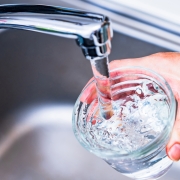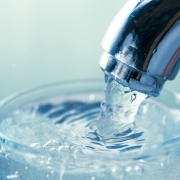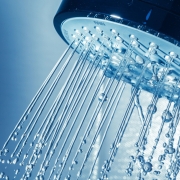The Importance of Clean Water; Why Access to Clean Water is Essential for Health, Industry, and the Environment
Water is the foundation of life. It sustains ecosystems, fuels industries, and is essential for human survival. However, access to clean water remains a critical challenge in many parts of the world. The availability of clean water is fundamental for public health, economic growth, and environmental sustainability. Understanding its importance and addressing water scarcity and contamination issues is vital for global well-being.
Health and Hygiene
Clean water is essential for human health. Contaminated water sources can harbor bacteria, viruses, and parasites that cause severe diseases such as cholera, dysentery, and typhoid. According to the World Health Organization (WHO), millions of people suffer from waterborne diseases every year due to inadequate access to safe drinking water and sanitation. Clean water is crucial for maintaining proper hygiene, reducing the spread of infections, and ensuring overall well-being.
Access to clean water also plays a significant role in maternal and child health. Proper sanitation and hygiene practices, including handwashing with clean water, help prevent the spread of diseases, particularly in vulnerable populations such as infants and the elderly. Without clean water, healthcare systems face increased burdens, leading to higher mortality rates and diminished quality of life.
Economic and Industrial Growth
Industries depend on clean water for production processes, cooling, and cleaning. Sectors such as agriculture, manufacturing, and energy production require vast amounts of clean water to function efficiently. Contaminated or insufficient water supplies can disrupt production, lead to increased costs, and cause economic instability.
Agriculture, for instance, relies on clean water for irrigation to ensure food security. Contaminated water can damage crops and lead to lower yields, affecting both farmers and consumers. Similarly, the energy sector depends on water for cooling power plants and generating hydroelectric power. A lack of clean water can hinder industrial operations, leading to job losses and economic decline.
Moreover, clean water contributes to sustainable tourism and recreation. Water bodies free from pollution attract visitors and support local economies. Businesses that rely on clean water, such as fisheries and beverage industries, also thrive when water resources are well-maintained.
Environmental Sustainability
Clean water is essential for maintaining biodiversity and preserving ecosystems. Rivers, lakes, and oceans support diverse wildlife, and contamination of these water bodies can have devastating effects on aquatic life. Pollutants such as plastic waste, heavy metals, and chemicals disrupt ecosystems, leading to habitat destruction and loss of species.
Deforestation, urbanization, and industrial waste contribute to water pollution, endangering both terrestrial and aquatic life. Protecting water sources through conservation efforts, pollution control, and sustainable water management practices ensures a balanced ecosystem and helps mitigate climate change.
Furthermore, clean water plays a critical role in reducing the impact of natural disasters. Floods, droughts, and other extreme weather events can exacerbate water contamination, leading to further health and environmental crises. Sustainable water management, such as watershed protection and wastewater treatment, can help communities better withstand these challenges.
Solutions and Global Efforts
Governments, non-profit organizations, and private sectors must work together to improve access to clean water. Investments in water infrastructure, sanitation systems, and pollution control are necessary to address water scarcity and contamination. Technological innovations such as desalination, water recycling, and advanced filtration systems can help provide clean water to underserved communities.
Education and awareness campaigns also play a crucial role in promoting water conservation and responsible water usage. Encouraging individuals and industries to adopt sustainable water practices ensures that future generations will have access to this vital resource.
Conclusion
Clean water is a necessity for human health, economic prosperity, and environmental balance. Ensuring universal access to safe water requires collective action and long-term commitment. By prioritizing clean water initiatives, we can create healthier communities, stronger economies, and a more sustainable planet for future generations.
If you are worried that your drinking water is not clean, schedule a free water test today to have peace of mind for yourself and your family.





